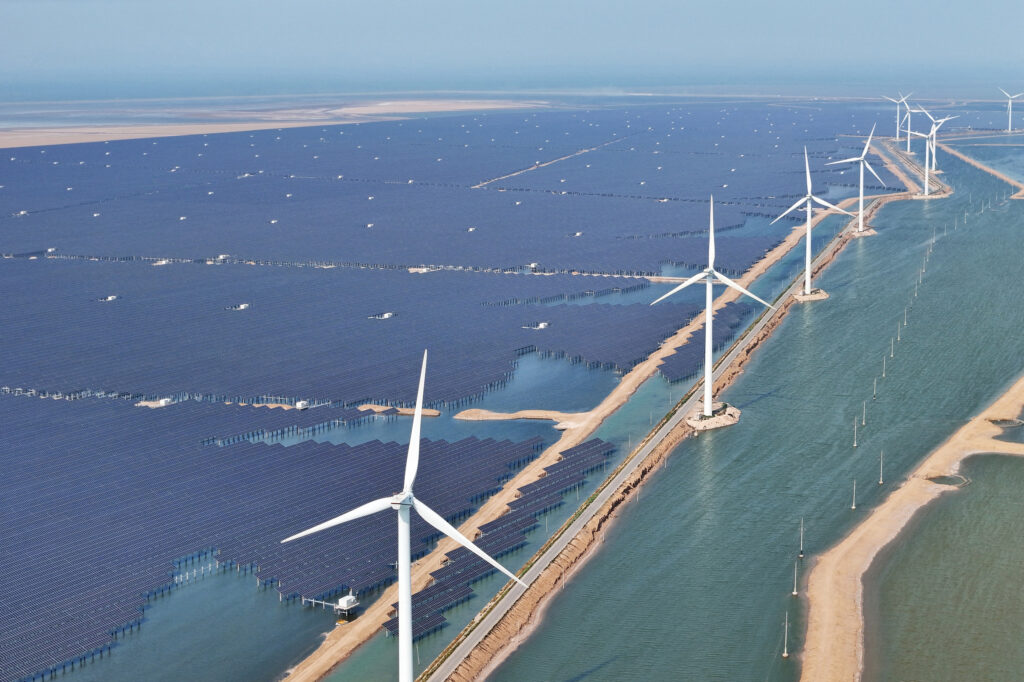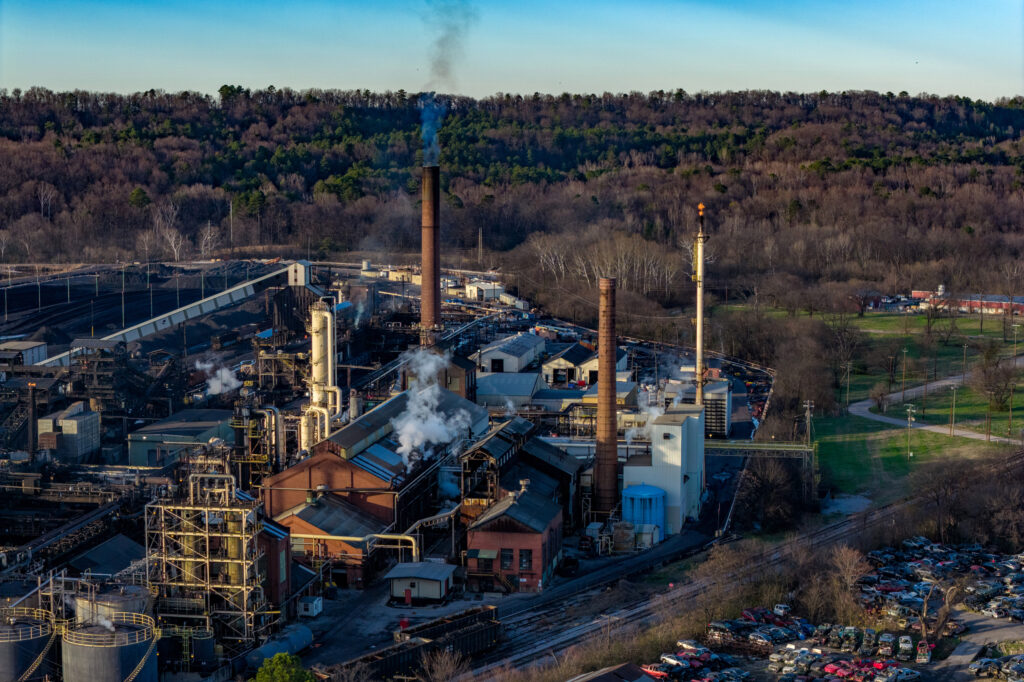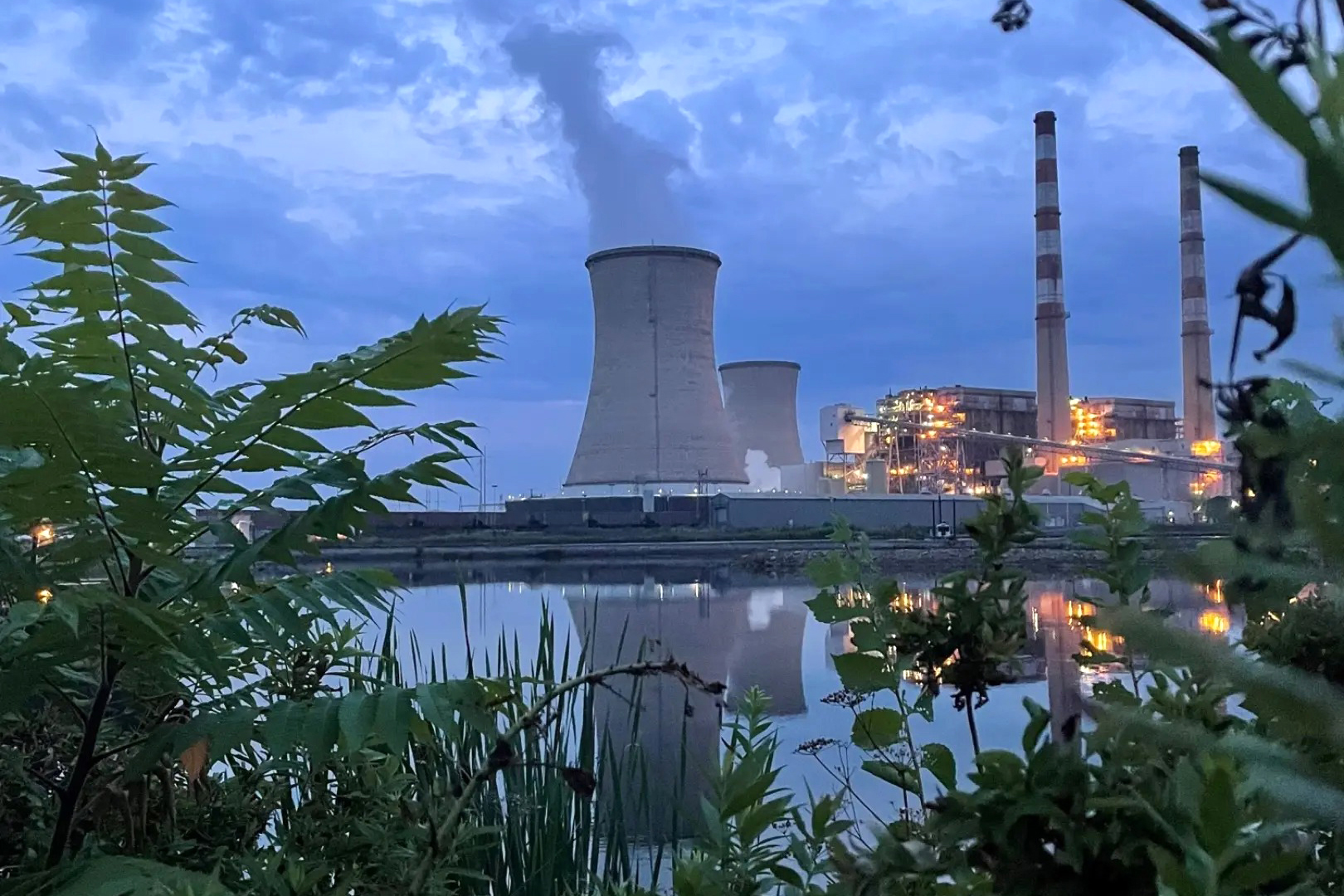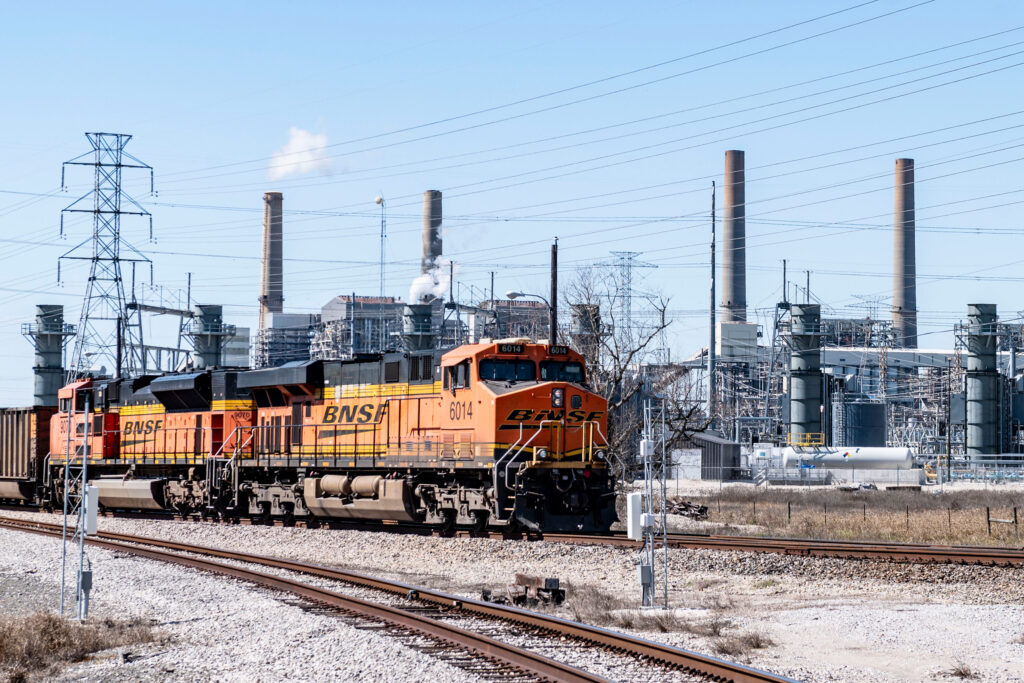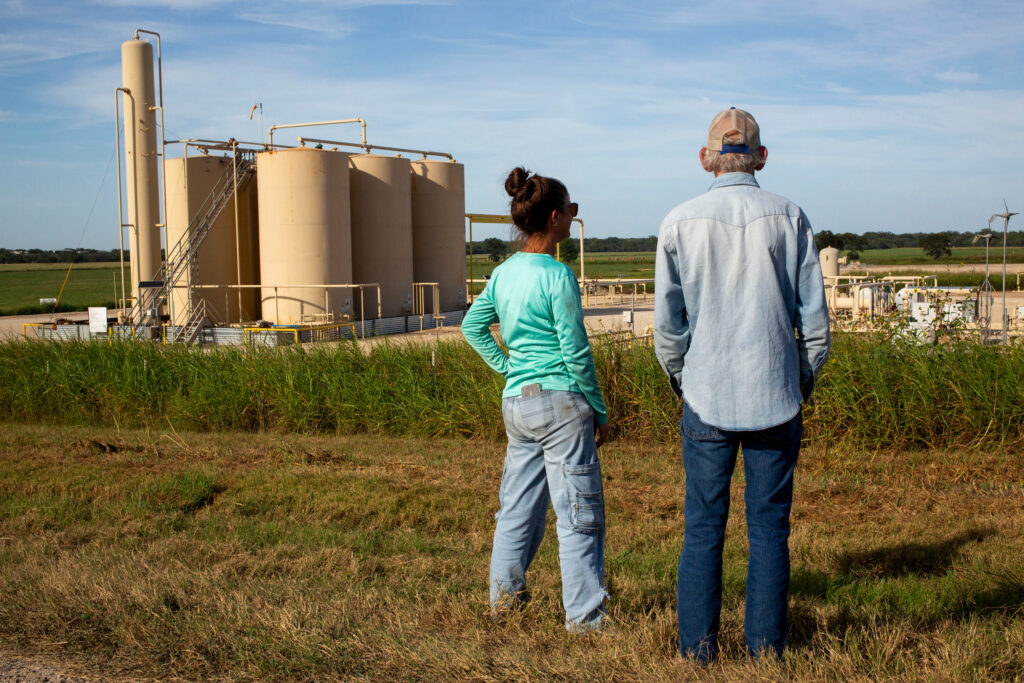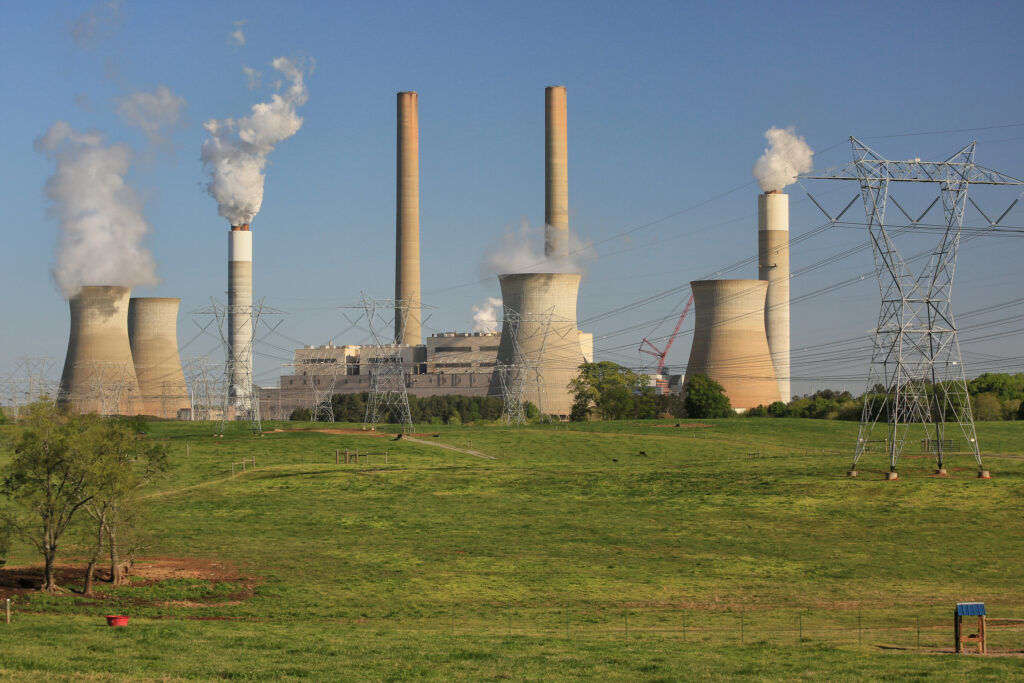At an automobile dealership in Indianapolis on Tuesday, Environmental Protection Agency administrator Lee Zeldin announced plans to rescind the science-backed 2009 determination that greenhouse gas emissions harm human health and the environment. Scientists, environmental policy experts and climate groups warn that revoking that decision will lead to dirtier air across America, and conflicts with the scientific consensus that emissions from the fossil fuel industry are causing global warming.
Following a 2007 Supreme Court decision that found greenhouse gases are air pollutants under the Clean Air Act, the EPA’s “endangerment finding” determined that climate-warming gases like carbon dioxide and methane “endanger both the public health and the public welfare of current and future generations,” enabling the agency to begin regulating emissions of the gases. Tuesday’s announcement sets the stage for rolling back the agency’s finding, effectively gutting the federal government’s ability to enforce emissions regulations from polluting industries, like the automotive or electricity industries, and limits the use of the Clean Air Act to address climate change.
“With this proposal, the Trump EPA is proposing to end sixteen years of uncertainty for automakers and American consumers,” Zeldin said in a statement announcing the change. The real threat to Americans is not carbon dioxide emissions, he added, but the standards set by the EPA. Eliminating the rule “would end $1 trillion or more in hidden taxes on American businesses and families,” he said.
If finalized, the EPA’s plan would end all greenhouse gas emissions regulations for motor vehicles and engines, despite transportation being the nation’s largest source of climate pollution.
The EPA’s overturning of the endangerment finding is the Trump administration’s latest action rolling back the country’s ability to address greenhouse gas emissions and fight climate change. Earlier this month, the EPA eliminated its Office of Research and Development, which guided the science behind the agency’s decisions and led the assessments of chemicals’ health risks. Petrochemical, mining and farm industry coalitions had long pushed for that science to be reined in.
“Abandoning all efforts to address climate change is not in the best interest of anyone but the fossil fuel industry, which has made trillions of dollars over the last 50 years and has shown that if unchecked, it will pursue profits at any cost, even if that destroys the American way of life,” said Shannon Baker-Branstetter, senior director of domestic climate at the Center for American Progress, in a statement. “Fossil fuel companies will continue practices that strip public lands of their majesty, pollute our air and water, and accelerate the pace of extreme heat, deep freezes, floods, hurricanes, and wildfires that cost billions of dollars and thousands of American lives.”
Environmental groups vowed to fight the EPA’s decision. Christy Goldfuss, executive director of the Natural Resources Defense Council, said in a statement that the announcement “flies in the face of the Supreme Court’s landmark decision directing the agency to follow the science.”
“And the science is irrefutable: continuing to spew greenhouse gases into the atmosphere will worsen climate impacts and endanger human health and welfare,” Goldfuss said. “Risks that seemed far in the future in 2009 are now everyday reality for millions of Americans.”
The EPA, under the Clean Air Act, is required to limit the emissions of any air pollutant that endangers public health or welfare. In the 2007 Supreme Court case Massachusetts v. EPA, the court ruled that the agency could regulate emissions of greenhouse gases like carbon dioxide because they qualify as air pollutants, and ordered the EPA to determine, based on the science, whether greenhouse gas emissions endangered public health.
In 2009, the EPA found that six greenhouse gases did endanger public health and welfare, requiring agency regulation of their emissions under the Clean Air Act. A coalition of industry groups sued over the decision, but the District of Columbia Circuit Court of Appeals upheld it.
Since then, the science showing greenhouse gas emissions threaten public health and warm the climate has only grown, with bigger and increasingly severe weather events like the wildfires in Los Angeles early this year, the hurricanes that have ravaged the Southeast over the past decade and extreme heat events across the country increasingly being scientifically attributed to climate change driven by human emissions greenhouse gases.
“You only have to open your eyes to what has been going on in the U.S. in the past 10 years to know that the climate has changed,” said John Balbus, the former deputy assistant secretary for climate change and health equity at the Department of Health and Human Services in the Biden administration, during a press call last week in preparation for the EPA’s announcement.
States themselves may have little ability to counter the EPA’s decision. President Trump signed three congressional resolutions in June barring California’s electric vehicle sales mandates and diesel engine rules, which 11 other states had adopted. California quickly sued the Trump administration over the decision, but until the U.S. District Court for the Northern District of California rules on the matter, the states cannot implement the rules, and Tuesday’s decision will likely make it harder for states to meet their own ambitious climate goals.
“Today’s actions by the Trump Administration fail to protect Americans’ health and wellbeing—the most basic responsibility of government,” wrote Phoenix Mayor Kate Gallego, Boise Mayor Lauren McLean and Atlanta Mayor Andre Dickens, chairs of the group Climate Mayors, in a statement. “Undermining EPA’s ability to protect people from pollutants is a rejection of science and common sense.”
About This Story
Perhaps you noticed: This story, like all the news we publish, is free to read. That’s because Inside Climate News is a 501c3 nonprofit organization. We do not charge a subscription fee, lock our news behind a paywall, or clutter our website with ads. We make our news on climate and the environment freely available to you and anyone who wants it.
That’s not all. We also share our news for free with scores of other media organizations around the country. Many of them can’t afford to do environmental journalism of their own. We’ve built bureaus from coast to coast to report local stories, collaborate with local newsrooms and co-publish articles so that this vital work is shared as widely as possible.
Two of us launched ICN in 2007. Six years later we earned a Pulitzer Prize for National Reporting, and now we run the oldest and largest dedicated climate newsroom in the nation. We tell the story in all its complexity. We hold polluters accountable. We expose environmental injustice. We debunk misinformation. We scrutinize solutions and inspire action.
Donations from readers like you fund every aspect of what we do. If you don’t already, will you support our ongoing work, our reporting on the biggest crisis facing our planet, and help us reach even more readers in more places?
Please take a moment to make a tax-deductible donation. Every one of them makes a difference.
Thank you,




